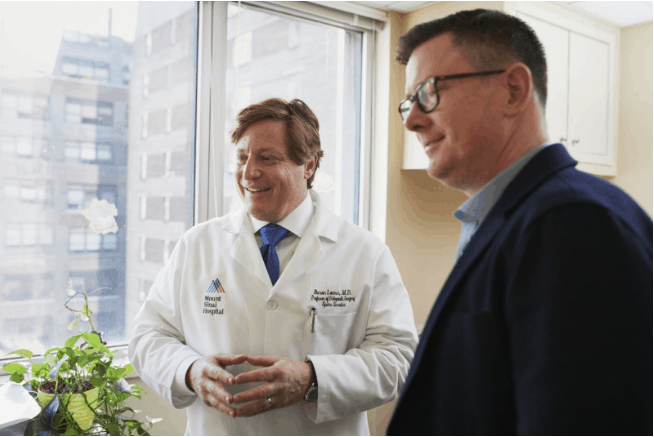Cancer is a disease that often affects the elderly. Ninety-percent of cancer diagnoses are made in people over the age of 50. Most of these cases arise in persons between the ages of 50 and 74. A third of all those diagnosed, though, are 75 years of age or older. Prostate, breast and lung cancers are all prevalent in the elderly, but this part of the population is vulnerable to cancer of all kinds.
Cancer prevalence among the elderly
Our DNA is more vulnerable to mutation as we age. Cancer is affected by factors of lifestyle such as drinking, smoking and being overweight, or genetic and environmental issues. Age, however, seems to be the biggest risk factor for cancer growth.
The care and treatment of cancer is a common concern for patients over 75 years of age. With the advancement of medical technology and treatment options, more people are living longer with cancer. Early diagnosis is important for optimizing survival chances in all cases. You may consider the subtle warning signs that can alert family that something is wrong with their elderly loved one.
Symptoms of cancer among the elderly
It is important that older people, their children, and caregivers, are aware of cancer symptoms and are willing to respond. Signs may include jaundice, persistent cough, bloody stool, new lumps on the body anywhere, changes in a mole’s shape and size, and unexplained weight loss. Recognizing these changes can be particularly difficult for those living with dementia or Alzheimer’s disease. There is also clear evidence that older people living alone are far less likely than those living with a partner or other family members to detect early cancer signs.
Caring for elderly patients with cancer
Build the understanding that elderly family members need support and spend time with them. If you have friends and relatives visiting from near and far on a regular basis, it is crucial that you don’t feel the pressure to play “host.” If they’re visiting, ask them to bring something to add to a family meal. Caring for elderly cancer patients is exhausting and you need time to rest, recharge your batteries and stay fit for treatment.
Change of relationships
If you look after a parent, your job will depend greatly on their wellbeing and functional level. It is difficult to live with a serious disease and can change relationships. Both the family caregiver and the elderly parent can find it difficult to adapt to the evolving parent/child dynamics; it can be awkward for both individuals to help your loved one get ready or go to the bathroom. It can help the situation to be transparent and always seek to be polite and to uphold their integrity. Consider scheduling caregivers to provide professional support if certain elements of personal care prove uncomfortable.
Open communication
Most people fear cancer and are concerned that they may say the wrong thing or scare somebody they love. It’s easy to fall into the trap of totally avoiding the subject, talking about the cancer experience of someone else or being too optimistic. It can help to just listen, rather than overwhelm your parents with positive stories and new therapies. Ask open-ended questions to express your fears and anxieties and give them a chance to express theirs. It’s natural to feel stressed out and have bad days, and sharing these feelings can be safe and cathartic.
More and more elderly patients are highly responsive to cancer treatment. This might be because of improvements to cancer care, but it’s often because they have a good support network through nursing or adult care homes like Long House. Living alone, especially after a spouse’s death or a relationship breakdown, does not work particularly well for mental health and does not contribute to increasing survival rates for cancer treatment.
Senior Outlook Today is your go-to source for information, inspiration, and connection as you navigate the later years of life. Our team of experts and writers is dedicated to providing relevant and engaging content for seniors, covering topics such as health and wellness, finances, technology and travel.






